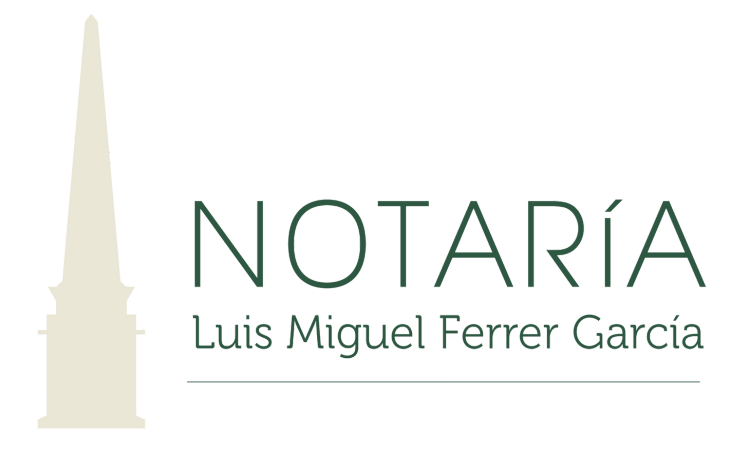Mortgages:
When purchasing a house, most people need to apply for a mortgage loan from a financial institution to cover the cost. Therefore, the first step is to research the available offers and the obligations that will be taken on. A mortgage is a way for individuals to obtain financing for their needs, where they guarantee the repayment of a debt or obligation with a property, usually a real estate property, which can be auctioned off in case the debt is not satisfied. The person who takes out the mortgage has the right to choose the notary who will advise them.
Required Documentation:
ID card, passport, NIE or residence card of the individuals who will take out the mortgage or documents proving the identity and representation of legal entities.
Proof of ownership of the property to be mortgaged or a note from the Property Registry.
If necessary, for example when a consumer is taking out a mortgage, they must have processed the previous material transparency act.
Mortgage Cancellations:
These consist of recording in the Property Registry that a mortgage debt has been satisfied, so that it no longer appears as a burden.
Requirements:
Request a certificate from the financial institution that granted the mortgage stating that the mortgage debt has been satisfied.
Only the representative of the financial institution will attend the signing at the notary's office, who will have to prove their powers in accordance with the general rules of corporate representation.
Mortgage Modifications:
These are changes to a mortgage that can have various contents. Among other scenarios, there may be changes in mortgage debtors (adding or increasing their number), change of creditor entity, extensions or reductions of term or capital, or alterations regarding the interest rate.
Requirements:
Generally, both the financial institution and the individuals who will remain in the mortgage loan must sign. This implies that individuals must provide their ID card, passport, NIE or residence card, and legal entities must provide documents proving their identity and representation.
In some cases, it is necessary to process a prior act of material transparency (which is free).
Prior Acts of Material Transparency:
These are notarial procedures related to a consumer mortgage, which allow the client to discuss the future mortgage with the notary, so that they can understand the content calmly and without pressure, as only the clients and the notary are present. The person taking out the mortgage always has the right to choose the notary. It is a free notarial act.
Requirements:
The client or clients must inform the bank of the chosen notary.
The bank sends a series of documents electronically to the notary, and the mortgage cannot be signed in Catalonia until 14 calendar days have passed since the sending or ten if the client waives the extra period established by Catalan legislation.
The client goes to the notary, and the notary explains all the documents personally. After that, the date for signing the mortgage can be scheduled.
Deeds in Lieu of Foreclosure:
These are contracts in which a property is delivered in exchange for the cancellation of a previous debt, thus freeing the former debtor.
Required Documentation:
For mortgage loans and recognition of debt:
Economic data of the operation.
Property titles of the properties to be mortgaged.
ID card of lenders and borrowers.
Marital property regime of both.
If a company is involved, the powers or appointment of current administrators. Data on registration with the Commercial Registry.
For urban properties, a certificate from the community of owners stating that the payments for the community expenses are up to date.
Cadastral reference (last IBI receipt).
Whether it is leased or not.
For mortgage cancellation or resolution conditions:
The economic data of the operation.
Deed of mortgage constitution or resolution condition.
Identification document (DNI) of lenders and borrowers.
If any company is involved, the powers or appointment of current administrators.
Registration data in the Mercantile Registry.
Cadastre reference (last property tax receipt)
If it is leased or not.
